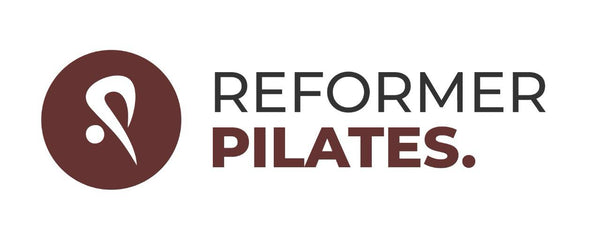Pregnancy invites a shift in routine, energy, and physical needs. Many women want to remain active, yet feel unsure about which workouts are supportive and which should be avoided. One common question is simple yet essential: Can you do reformer Pilates while pregnant? The answer depends on health history, stage of pregnancy, and proper guidance.
This style of movement has gained attention for blending controlled strength, flexibility, and breath awareness. When practised thoughtfully, it can support both comfort and confidence during pregnancy.
The method used in Reformer Pilates encourages slow, aligned movement rather than high-impact training. Many expectant mothers appreciate this balanced approach because it strengthens the body without unnecessary pressure or strain. However, understanding the proper modifications and safety guidelines matters.
What Makes Reformer Pilates Popular During Pregnancy
Before asking whether you can do reformer Pilates while pregnant, it helps to understand why many pregnant women seek this form of exercise. Traditional fitness routines may feel intense or uncomfortable as the body changes. In contrast, this method focuses on stability, posture, and mobility. These areas are essential during pregnancy, especially as the centre of gravity shifts and joints become more flexible due to hormonal changes.
The movements are controlled and designed to strengthen deep abdominal muscles, pelvic floor, and back muscles. These areas help support the growing belly and reduce common discomfort such as lower back tension, hip stiffness, or posture issues.
Is It Safe
Many health professionals agree that continuing exercise during pregnancy can benefit both mother and baby. Still, the question remains: can you do reformer Pilates while pregnant? The safest approach includes approval from a doctor or midwife and working with a certified prenatal instructor. The equipment requires awareness of alignment and modifications. Guidance ensures exercises are performed without pressure on the abdomen or movements that may compromise comfort.
During pregnancy, especially in the second and third trimesters, lying flat on the back for extended periods may limit blood flow. A knowledgeable instructor will modify exercises to side-lying, kneeling, or seated positions.
Benefits During Pregnancy
Many women feel stronger and more balanced during and after pregnancy when practising regularly. Some of the most appreciated benefits include:
- Stronger pelvic floor.
- Improved posture.
- Better mobility and circulation.
- Reduced muscle discomfort.
- Increased body awareness and breath connection.
These supportive improvements often help during labour, recovery, and daily movement. As the body grows, controlling how muscles engage becomes more critical. The deliberate pace used in Reformer Pilates gives space to think about movement rather than rushing through it.
Modifications That Matter
If you are considering this style of movement, the question is, can you do reformer Pilates while pregnant? Shifts into how you can do it safely. Prenatal modifications may include:
- Using lighter springs for support.
- Avoid deep twists and crunch-style exercises.
- Replacing supine positions after the first trimester.
- Prioritising spinal mobility and hip stability.
- Using additional props for balance and comfort.
These adjustments protect the core and pelvic floor while supporting functional strength.
How It Affects the Core
Core training during pregnancy requires intention. Deep abdominal engagement helps stability, yet overworking the core may contribute to abdominal separation, also known as diastasis recti. With proper instruction, breathing patterns shift from tight bracing to gentle activation.
Many prenatal instructors guide clients to exhale during effort. This approach helps activate muscles safely instead of pushing outward. This is one reason the question Can you do reformer Pilates while pregnant? Often receives a positive answer when supervision and modifications are present.
When to Avoid Reformer Pilates
There are moments when it may not be suitable. Anyone experiencing dizziness, high-risk pregnancy, bleeding, severe pelvic pain, or preterm labour signs should pause and consult a medical professional. Listening to the body is essential. If something feels uncomfortable, the exercise should stop immediately.
Pregnancy is not the time for intense physical challenge. Instead, it becomes a time to move with care, presence, and softness.
What to Expect in a Prenatal Class
A typical prenatal class feels calm, steady, and mindful. Instructors guide breathing, posture, and controlled movement. Expect to adjust positions more often than in a standard session. The goal is comfort and support.
Most women leave feeling lighter, stronger, and more connected to their changing bodies. The practice often becomes grounding. It builds trust in physical capability during a powerful life transition.
Postpartum Continuation
After birth, many new mothers return to the practice as part of recovery. The method helps rebuild deep core muscles and restore posture. However, a doctor's clearance is essential before starting postpartum exercise. The timeline varies.
Once cleared, this style of movement can help reconnect breath, pelvic floor, and mobility. It supports recovery rather than rushing it, which feels sustainable.
Final Thoughts
So, can you do reformer Pilates while pregnant? For many women, the answer is yes, with guidance, approval from a healthcare provider, and proper prenatal modifications. The practice offers gentle strength, improved posture, and body awareness. It supports both pregnancy and postpartum transitions.
When practised mindfully, it becomes more than exercise. It feels like a supportive extension of self-care.
Whether you join a studio offering prenatal sessions or train with professionals connected to Reformer Pilates, the key is comfort, safety, and respect for the changing body.
FAQs
1. Can beginners practice while pregnant
Yes, many expectant mothers begin during pregnancy with instructor support.
2. When should modifications start
Most modifications start after the first trimester, though comfort should guide decisions.
3. Does reformer work help with posture changes
Yes, strength and mobility training can support better alignment as the belly grows.
4. Is it normal to use lighter resistance
Yes, reducing tension ensures safe core and pelvic engagement.
5. Should I stop if I feel discomfort
Always. Any discomfort means the exercise needs modification or a break.

